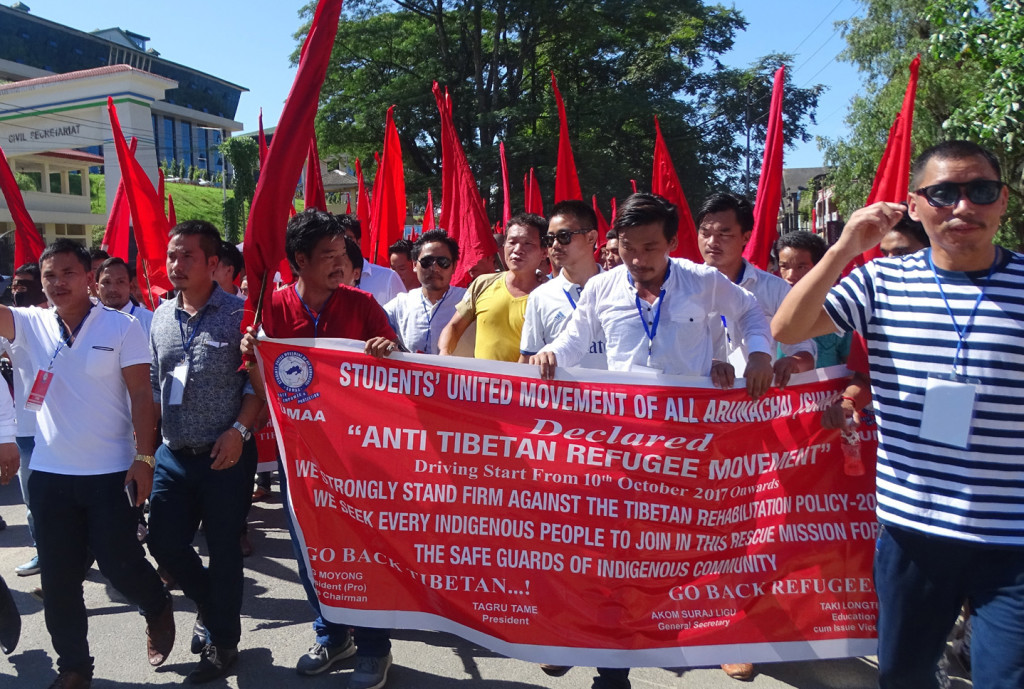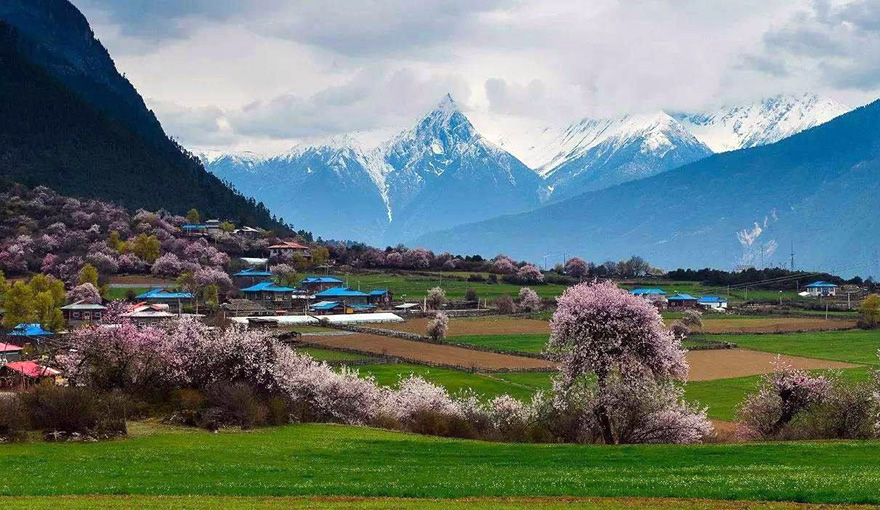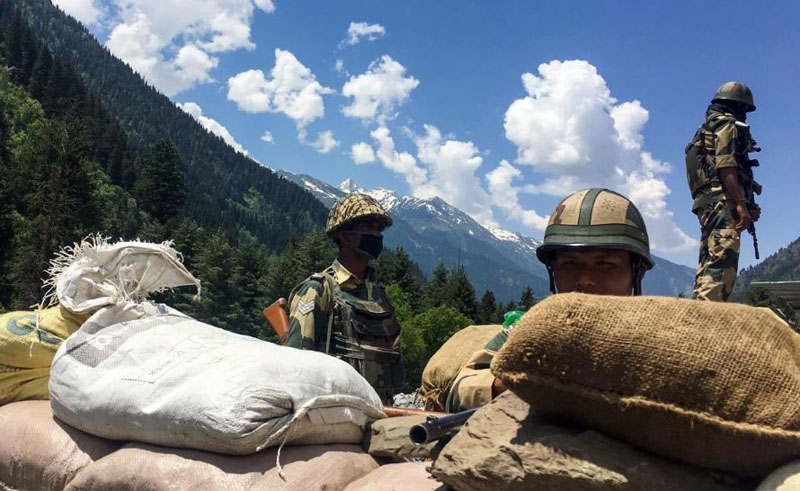
(TibetanReview.net, Jul13, 2018) – A group calling itself the Students’ United Movement of All Arunachal (SUMAA) in the northeastern Indian state of Arunachal Pradesh had on Jul 9 submitted a memorandum to the West Kameng district deputy commissioner, demanding that Tibetans living in the state be deprived of any trading licenses they may have obtained, banned from asserting their Indian citizenship or applying for one, and be confined to the designated refugee settlements without any sort of social welfare scheme declared permissible under New Delhi’s Tibetan Rehabilitation Policy, 2014.
The group has said it had launched the current agitation after the expiry of a 50-day ultimatum it had served on the state government. If has now given a three-day ultimatum for its demands to be met before launching a “rigorous movement”, according to arunachaltimes.in Jul 11.
Most frighteningly, the group has demanded that it be furnished with “the data/dossier of Tibetans refugees in the West Kameng district.”
Many of the Tibetans living in the state have blood connections and kinship with people from ethnic or sub-ethnic groups living in the state, having crossed over after China’s invasion and occupation of Tibet. So working out a dossier, even if legal or permissible, would be a most daunting task.
India’s citizenship law says that anyone born in the country between Jan 26, 1950 and Jul 1, 1987 are citizens by birth, which would quality the bulk of the Tibetans living in the state to legally assert their citizenship. However, the vast majority have preferred to continue to remain non-citizens by registering themselves as foreigners with temporary residency, as required by New Delhi and as ‘desired’ by the Central Tibetan Administration at Dharamshala, which coordinates welfare schemes for exile Tibetans.
Tibetans in the state, now numbering around 7500 after Canada recently accepted 1000 for resettlement, live mainly in four settlements located in Tezu, Miao, Tuting, and Tenzingang.
Following previous protests, Chief Minister Pema Khandu had given assurances that the Tibetan policy would not be allowed to hamper the state’s interest or the interests of the local people. The group is either apparently not satisfied or only interested in creating trouble for political reasons, seeking demands whose fulfillment would be patently illegal to a great extent.






Where is our honorable sikyong la? Where is the kashag now?
Where is those chitues? I’m sorry for our fellow tibetans those who are staying in Arunachal pradesh.